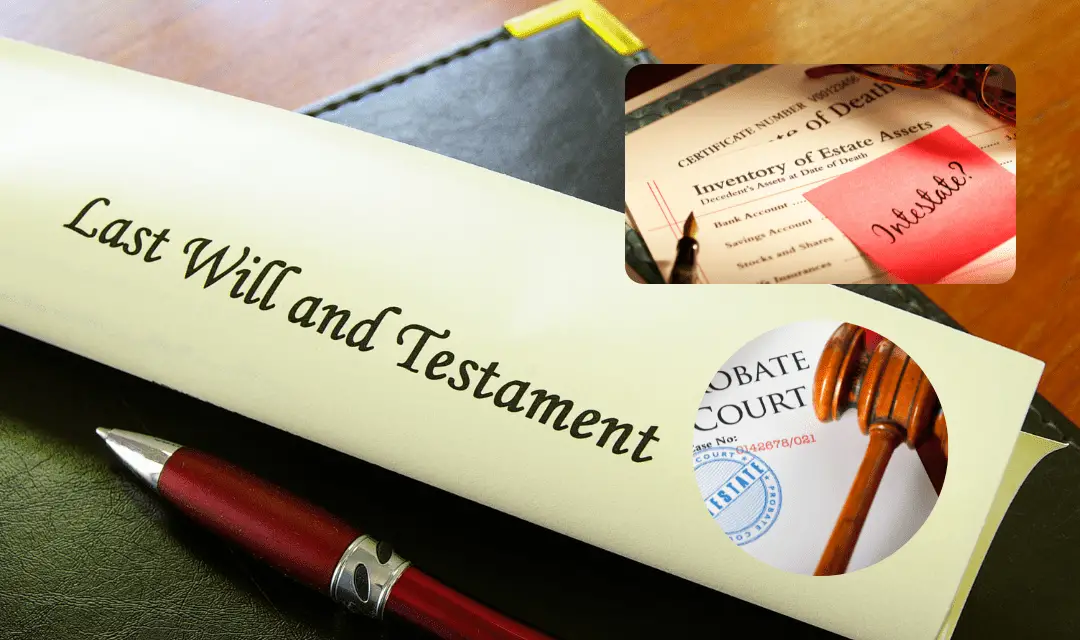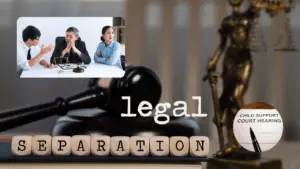Settlement of the estate of the deceased
Settling an Estate after Death refers to the process of adjudicating the properties of the person after his death, for payment of liabilities and ultimately for distribution to rightful heirs. In this discussion, we shall tackle what is settlement of the estate of the deceased.
Settling the estate, after the death of the decedent,1 may be done judicially or extrajudicially. Judicial settlement pertains to the filing of a petition before the court to determine the nature of the estate to be disposed and the proper objects of the inheritance.
Extra judicial, on the other hand, refers to the settlement of the estate done outside or without the court’s participation. In this case, the heirs will execute a document, commonly known as the Extra-Judicial Settlement of the estate, which the heirs may utilize for purposes that may serve them best.
It must noted that in settling the estate extrajudicially, the parties concerned must agree between or among themselves, and there must be no disputes as regards the partitions and distributions of such properties.
However, this is only applicable to intestate succession. When a person dies leaving a will, the heirs must undergo first a probate proceeding, as no last will and testament shall pass either real or personal properties, with it being probated.2
In the probate of a will, judicial recourse is mandatory. Such course of action does not even prescribe by reason of public policy. No probate of a will; no transfer of property.
What does settlement of the estate of the deceased mean?
This means that, when a person dies, he may have left something of value. This valuables left after the person’s demise are called estate or, on the point of view of the heirs, inheritance. If these are substantial, necessarily, the heirs, as a matter of fair distribution, must invoke the aid of the court. Hence, this may be what we call judicial settlement of the estate.
In this situation, it may be either the decedent [a person who dies leaving an estate] has left a last will or does not have one. In fine, the court, when an heir files a petition for judicial settlement, can take cognizance of the case regardless whether the decedent dies with a will or otherwise.
Nonetheless, if there is a last will and testament, the heirs should go to court to probate the same. This is mandatory because a last will and testament that is not probated cannot transfer either real or personal property to the heirs.
In the event that the decedent left no last will and testament and the heirs do not dispute their respective shares, they can adjudicate between or among themselves the inheritance, without resorting to court. They can execute an Extra-Judicial Settlement or Partition of the estate.
What is considered an estate of a deceased person?
The estate of a person includes all of the individual’s total assets, properties, excluding the liabilities. The New Civil Code provides that the inheritance includes all the property, rights and obligations of a person which are not extinguished by his death.
Furthermore, it is also provided, under Art 781 of the same code, that the inheritance of a person includes not only the property and the transmissible rights and obligations existing at the time of his death, but also those which have accrues thereto since the opening of succession.3
The New Civil Code provides that “the Inheritance of a person includes not only the property and the transmissible rights and obligations existing at the time of his death, but also those which have accrued thereto since the opening of the succession”.
Only transmissible rights or property here falls under and obligations pass by succession. It might not be possible to make a complete enumeration of what these transmissible rights and obligations are. However, the criterion is simple and may be laid down as a general rule.
Thus, according to Manresa, it may be defined as the universality of all the property, rights and obligations constituting the patrimony of the decedent which are not extinguished by his death.
On the other hand:
According to Castan, it may be defined as the entirety of the patrimonial properties and relations which constitute the objective elements of succession.
Why is an estate of the deceased need to be settled?
The estate of the deceased needs to be settled in order to protect the rights and obligations of the compulsory heirs. This is done, as well, to uphold the deceased’s desires in terms of testamentary succession. It is also a course of action that is undertaken to protect rights of the creditors of the deceased, if any.
Settlement of the deceased’s estate shall also put a rest conflicting claims over the inheritance. This can also settle apparent disputes between or among the heirs of the decedent, who cannot come to terms by themselves, without the invocation of court’s wisdom.
While court’s power may be necessary or indispensable in certain instances, still, when the decedent dies without leaving a will and the heirs agree to adjudication between or among themselves the estate, without going to court, they can do by means of an Extra-Judicial Settlement or Partition.
How is an estate settled with a Will?
The New Civil Code provides that Succession may be testamentary, legal or interstate, or mixed. This means that when a person dies leaving a will, this will be called a testamentary succession. Now how will the estate be settled with it?
The New Civil Code provides for the supremacy of testamentary succession over intestacy, as it upholds the primordial desire of the testator, in effecting distribution of his property after his death.
Since the making of a will is a personal act of the person done with the formalities prescribed by law, testamentary succession is more on the personal volition of the person making it. His wishes, therefore, must be paramount.
The estate is divided in two parts, the legitime and the free portion. Legitime is the part of the estate which is reserved or restricted exclusively to the compulsory heirs.4
The compulsory heirs such as the spouse, children may it be legitimate or illegitimate, the parents will share from the legitime part of the estate. After the deducting the legitimate estates, the free portion thereof can be distributed or freely disposed of by heirs to anyone.
As mentioned earlier, if there is a will, it is mandatory that it shall be probated in court. Hence, in Philippine Law, judicial recourse is necessary. This is commenced by filing a Petition for Probate of a Last Will and Testament before a competent court. Hence:
Section 1. Who may petition for the allowance of will. — Any executor, devisee, or legatee named in a will, or any other person interested in the estate, may, at any time after the death of the testator, petition the court having jurisdiction to have the will allowed, whether the same be in his possession or not, or is lost or destroyed.5
The testator himself may, during his lifetime, petition the court for the allowance of his will.6
Section 2. Contents of petition. — A petition for the allowance of a will must show, so far as known to the petitioner:7
(a) The jurisdictional facts;8
(b) The names, ages, and residences of the heirs, legatees, and devisees of the testator or decedent;9
(c) The probable value and character of the property of the estate;10
(d) The name of the person for whom letters are prayed;11
(e) If the will has not been delivered to the court, the name of the person having custody of it.12
But no defect in the petition shall render void the allowance of the will, or the issuance of letters testamentary or of administration with the will annexed.13
Section 3. Court to appoint time for proving will. Notice thereof to be published. — When a will is delivered to, or a petition for the allowance of a will is filed in, the court having jurisdiction, such court shall fix a time and place for proving the will when all concerned may appear to contest the allowance thereof, and shall cause notice of such time and place to be published three (3) weeks successively, previous to the time appointed, in a newspaper of general circulation in the province.14
Why is an estate of the deceased need to be settled?
There is a need to settle the estate of the deceased owing to a natural law which obliges a person to provide for those he would leave behind. This is a consequence of family relations; a recognition of the natural law of consanguinity, or of blood, and the natural affection of a person toward his children, descendant ascendant and spouse.
Another factor is the socio-economic postulate which would prevent wealth from becoming inactive or stagnant. An estate which has not been settled for a long period of time after the death of the decedent would necessarily become useless.
This will as well obviate the possibility of conflicting claims and family feud.
How is an estate settled with a without a Will?
They say that death comes like a thief in the night, and for some their untimely death may have prevented them from executing a will.
However, the law nevertheless provides what the decedent had not provided in a will by designating a person who are to succeed with the estate taking into consideration human affection or their ties. It is in this situation where legal or intestate succession takes place.
Under the law, legal or intestate succession happen when a person dies without a will, or with a void will, or when a suspensive condition attached to the institution of heir does not happen or is not fulfilled, or if the heir dies before the testator, or repudiates the inheritance.
In applying the legal or intestate succession, these principles must be applied. The first is that the relative nearest degree excludes the more distant ones, the spouse concur with compulsory and collateral relatives and collateral relatives cannot inherit in the presence of ascendants and descendants.
The Philippine Rules of Court provide as follows:
Section 1. Where estate of deceased persons settled. — If the decedents is an inhabitant of the Philippines at the time of his death, whether a citizen or an alien, his will shall be proved, or letters of administration granted, and his estate settled, in the Court of First Instance [now Regional Trial Court] in the province in which he resides at the time of his death, and if he is an inhabitant of a foreign country, the Court of First Instance [now Regional Trial Court] of any province in which he had estate. The court first taking cognizance of the settlement of the estate of a decedent, shall exercise jurisdiction to the exclusion of all other courts. The jurisdiction assumed by a court, so far as it depends on the place of residence of the decedent, or of the location of his estate, shall not be contested in a suit or proceeding, except in an appeal from that court, in the original case, or when the want of jurisdiction appears on the record.15
Who can claim against the estate of the deceased?
Heirs,16 whether compulsory or voluntary, Legal Heirs other than compulsory or voluntary, legatees, and devisees17 may claim against the estate. In addition, any person whom the decedent owes money or property may claim against the latter’s estate.
Art. 774 of the New Civil Code of the Philippines also provides that “Succession is a mode of acquisition by virtue of which the property, rights and obligations to the extent of the value of inheritance, of a person are transmitted through his death to another or others by his will or by operation of law.”18
This provision of the law means that not only property and rights can be inherited by the heirs but also the obligation of the decedent. However, personal obligation or those obligation which can only performed by the deceased cannot be transferred to the heirs.
We have to understand that the transfer of the obligation of the deceased is only limited to the estate left by the decedent. For example, if the deceased left an obligation of Php 1,000,000.00 and total estate only amounts to Php 500,000.00, the remainder of Php 500,000.00 cannot be charged or claimed against the property of the heirs.
Who gets paid first when settling an estate?
When setting an estate of the deceased it is a cardinal rule that liquidation is necessary in order to determine whether or not the decedent has left any liquid assets which may be transmitted to his heirs.
Therefore, before the inheritance is distributed to the heirs of the decedent, all of the latter’s remaining obligation must be settled first. Thus, what will subject for distribution is only the net estate.
This simply means that debts left by the decedent must be paid first before the remaining property be divided among the heirs who are entitled to inherit. With this, we can say that creditors of the deceased get paid first in settling an estate and the heirs is paid thereafter.
When the property left by the decedent is not enough to cover all the obligations the latter left, the remaining obligation cannot be charged against the heirs of the decedent. Consequently, the claim of creditors is limited only to the estate left by the decedent and in case of insufficiency, the creditor will bear the loss.
Can an executor just take money or valuables from the estate?
Executor is person assigned to manage the property left by the decedent. Being the executor does not necessarily mean that he is one of the beneficiaries of the estate left. However, an heir can be an executor when he is appointed in the will by the testator himself.
Tasks that may be included in the executor is only limited on managing the property such as distributing the assets in accordance with the will if there is any, paying of debts, taxes, selling of properties if needed and preservation of property.
Perforce, an executor is not a beneficiary without any provision on the will declaring such, with this, the executor cannot just take money and valuables from the estate for his own benefit.
Being charged with management and preservation of property, executor may incur liability if he has been found negligent on his duty or he causes delays to raise or pay any liability or obligation of the estate.
When the value of the estate is lessened or unnecessary cost or interests accrues by reason of executor’s negligence, the loss shall be charged against the executor’s and he shall be liable therefor.
How is the inheritance distributed?
Art. 776 of the New Civil Code of the Philippines state that “the inheritance includes all the property, rights and obligations of a person which are not extinguished by death.”
As discussed above, in the settlement of estate, all debts of the decedent shall be settled first and the remaining property shall then be distributed to the heirs of the decedent.
Once all the obligation of the decedent has been settled, distribution of the remaining property takes place. First, we have to identify if there’s a will left by the decedent or none.
If there’s a will left by the decedent and it is accordance with the formalities required by law, then the property will be distributed according to it, keeping in mind that the legitime of compulsory heirs shall not be impaired.
Legitime is that portion of property of the estate which the law reserved for compulsory heirs. If there is no will, then legal or intestate succession takes place where the property is distributed in accordance with the provisions of the law.
If there should be a will but the same did not dispose the entire property, mixed succession will take place. The property covered by the will is distributed in accordance with the testamentary dispositions on the will and as to the remaining property, legal succession takes place and be distributed in accordance with the law.
What happens if a beneficiary dies before the estate is settled?
If the beneficiary dies before the estate is settled, his share will pass to his or her own heirs. This is done by a division by stirpes, as provided under Article 974 of the New Civil Code, which means that the lineal descendants of the deceased beneficiary will get in equal parts what the deceased beneficiary would have received.
Steps in settling an estate of the deceased with a Will
In case there is a last will and testament, an interested person should file a Petition for Probate of Will with the appropriate court.
The purpose of the probate is to determine whether the compliance of the last will and testament with the legal formalities and requirements.
Once the court determines that the last will and testament is legally valid, it will appoint an executor, as named in the will, or an administrator with a will annexed to implement the wishes of the decedent as stipulated in the will.
The executor or administrator with a will annexed shall administer the estate, pay the debts, and pay the appropriate taxes.
After all the obligations of the estate have been settled, the court will order the distribution of the residue properties of the estate to the heirs.
Finally, the court order of distribution and the Certificate Authorizing Registration will be submitted to the appropriate agencies to effect the transfer of the properties to the heirs.
Steps in settling an estate of the deceased without a Will
This my be Extrajudicial or Judicial.
Extrajudicial Settlement of Estate in the Philippines may be done if the following requisites are present:
(a) the decedent did not have a last will and testament;
(b) the decedent did not have any outstanding debts which need to be settled; and
(c) all the heirs agree on the manner of the distribution of the estate.
In this case, the heirs can just execute a public instrument, that is to say that they need to execute a notarized extrajudicial settlement of estate or in the case of a single heir, an affidavit of self-adjudication, and then afterwards, divide the estate among themselves in accordance with their specific preferences.
After the publication of the public instrument plus the payment of appropriate taxes, the properties of the decedent can now be transferred to the heirs.
If the transfer involves personal properties, the Certificate Authorizing Registration issued by the Bureau of Internal Revenue needs to be presented to the appropriate institutions to effect the transfer of the properties to the name of the heir– for example, to banks in case of bank deposits, then to the corporate secretary of a corporation in case of shares of stocks.
In case of real properties, the Certificate of Authorizing Registration and the executed public instrument have to be registered with appropriate registries of deeds where the property is located in order for them to issue a new title under the heir’s name.
In case the heirs are unable to agree to partition the estate among themselves and they want to do a judicial settlement, it may be done by an interested person who should file a Petition for Intestate Settlement of Estate with the appropriate court.
Afterwards, such court will appoint an administrator of the estate who will be in charge of the administration, who will also pay the debts and obligations of the estate, as well as taxes due from the estate.
The administrator may submit a Project of Partition showing how the properties of the decedent will be divided in case of disagreement amongst heirs. Once approved by the court, the Partition shall be binding and enforceable and shall be utilized as the basis for distribution of the estate.
The court order approving the Project of Partition, together with the Certificate of Authorizing Registration, will be submitted to the appropriate agencies to effect the transfer of real properties or personal properties to the heirs.
Final Thoughts
While the passing of a loved one is tragic, there are matters that need to be settled in relation to this unfortunate event. Regardless of if the decedent has left a will or not, there are ways to help the heirs and the family with regard the settlement and distribution of the estate of the deceased. In case problems arise, families are better off getting legal advice on the matter.
- Art. 775 of the Civil Code[↩]
- Article 838. No will shall pass either real or personal property unless it is proved and allowed in accordance with the Rules of Court. [Civil Code of the Philippines][↩]
- Article 781 of the Civil Code[↩]
- Article 886. Legitime is that part of the testator’s property which he cannot dispose of because the law has reserved it for certain heirs who are, therefore, called compulsory heirs. [Civil Code of the Philippines][↩]
- Section 1, Rule 76 [Allowance and Disallowance of Will] of the Rules of Court[↩]
- Id.[↩]
- Section 2, Id.[↩]
- Id.[↩]
- Id.[↩]
- Id.[↩]
- Id.[↩]
- Id.[↩]
- Id.[↩]
- Section 3, Id.[↩]
- Section 1, Rule 73 [Settlement of Estate of Deceased Person] of the Rules of Court[↩]
- Art. 782 of the Civil Code[↩]
- Id.[↩]
- Art. 774 of the Civil Code[↩]




